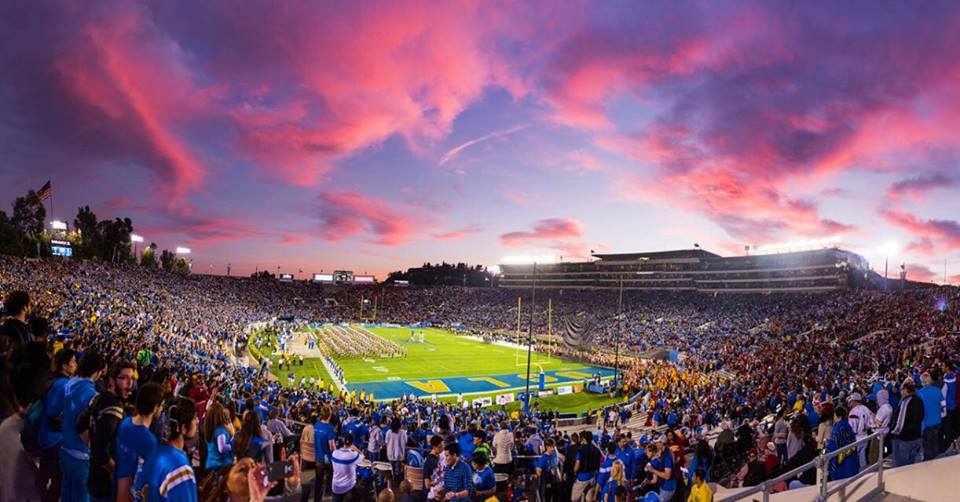
Despite a distinct set of challenges facing the stadium, the Rose Bowl managed to turn a profit of over $335,000 in fiscal 2019.
The famed facility in Pasadena is currently facing a few challenges from an operations standpoint, spanning from over $200 million in debt remaining from a renovation project completed in 2016, to declining attendance at UCLA football games and decreasing use of on-site golf courses that have traditionally subsidized the stadium’s expenses. Those trends, combined with an increasingly competitive facilities landscape in the Los Angeles area, has had officials bracing for financial challenges in the near future.
While some of those issues did have an effect on the most recent fiscal year, the Rose Bowl was still left with a profit of $335,753 in fiscal 2019, which ran from July 1, 2018, to June 30, 2019. A few factors were cited as helping to generate that profit, including a decrease in some expenses and a strategy that relies on renting spaces in the Rose Bowl out for small events, leveraging a revenue stream that the renovations are credited with helping to generate. (The Rose Bowl is limited by law to hosting about 15 major events each year, but there is no such limit on smaller gatherings.) Rose Bowl Operating Company officials know that they will continue to face certain obstacles going forward, but the stadium’s performance in the most recent fiscal year exceeded their expectations. More from the Pasadena Star-News:
Still, when it came time to count the pennies, Rose Bowl officials found themselves with $335,753 in unexpected profit in fiscal 2019, according to a report presented to the Rose Bowl Operating Company Finance Committee on Wednesday.
“We exceeded our expectations,” Rose Bowl Operating Company CEO Darryl Dunn said in an interview. “We were able to rally with some incremental revenues, reducing some expenses, and we ended up with a positive year. We’re very proud of our accomplishments.”
Getting to this point, however, has been far from a painless process, and officials say they expect a few more “lean years” in the near future.
The Rose Bowl has to find ways to stand out in the Los Angeles area, where the slate of large facilities that can host major events is growing stronger with the debut of Banc of California Stadium in 2018, the completion of Los Angeles Memorial Coliseum renovations last year and the scheduled opening of SoFi Stadium in Inglewood this summer. How the Rose Bowl manages to distinguish itself in the coming years, while also working through certain ongoing challenges, remains to be seen, though the venerable facility did see some bright spots in the most recent fiscal year. Rose Bowl first opened in 1922, and currently hosts UCLA football, the annual Rose Bowl game, and other events.
Image courtesy Rose Bowl Stadium.
